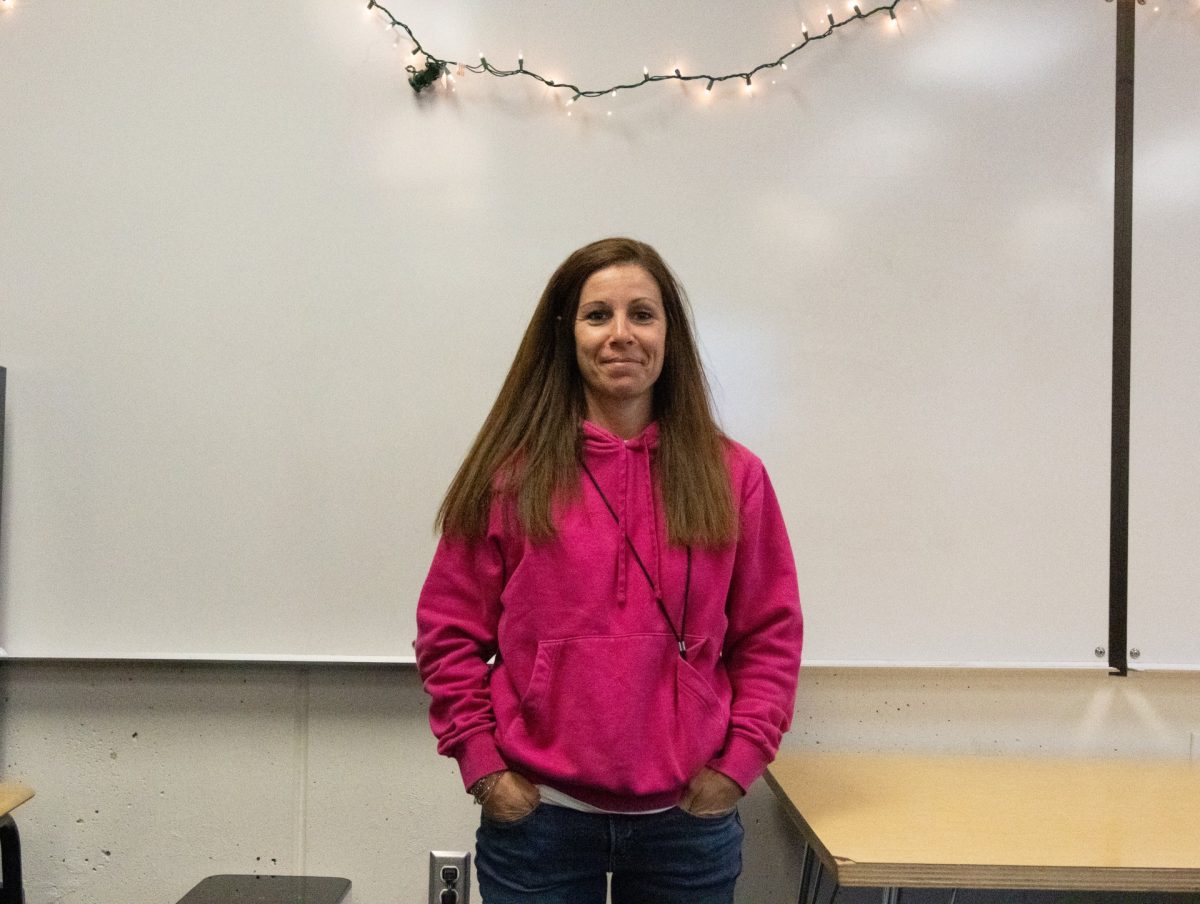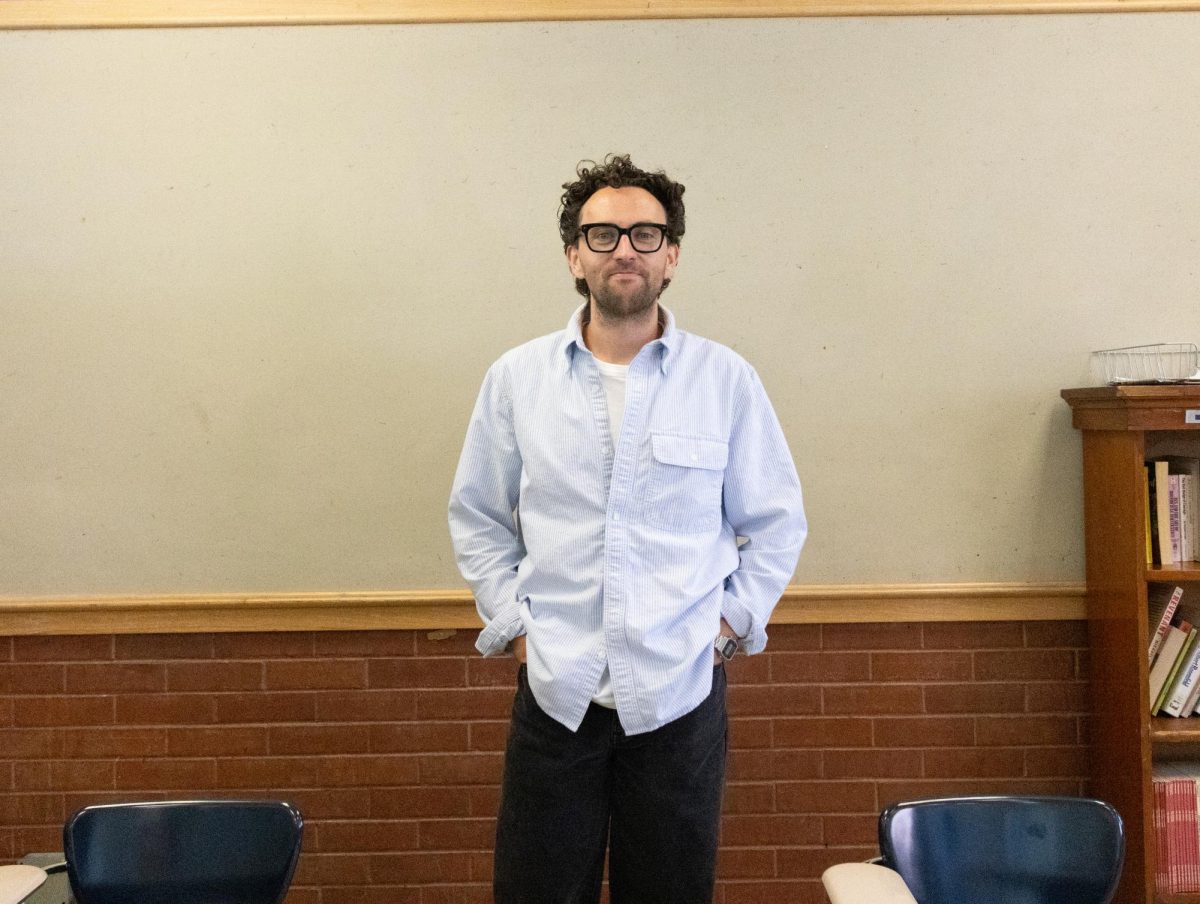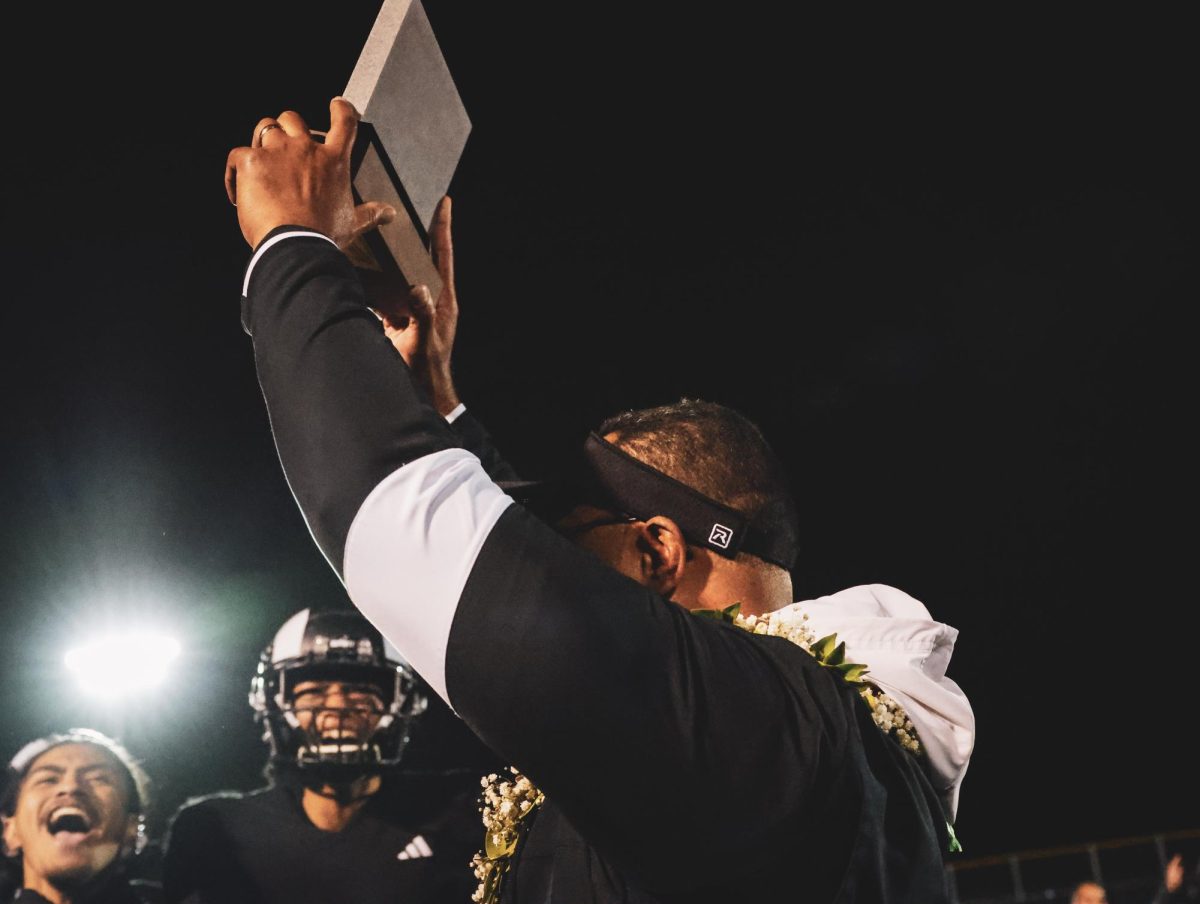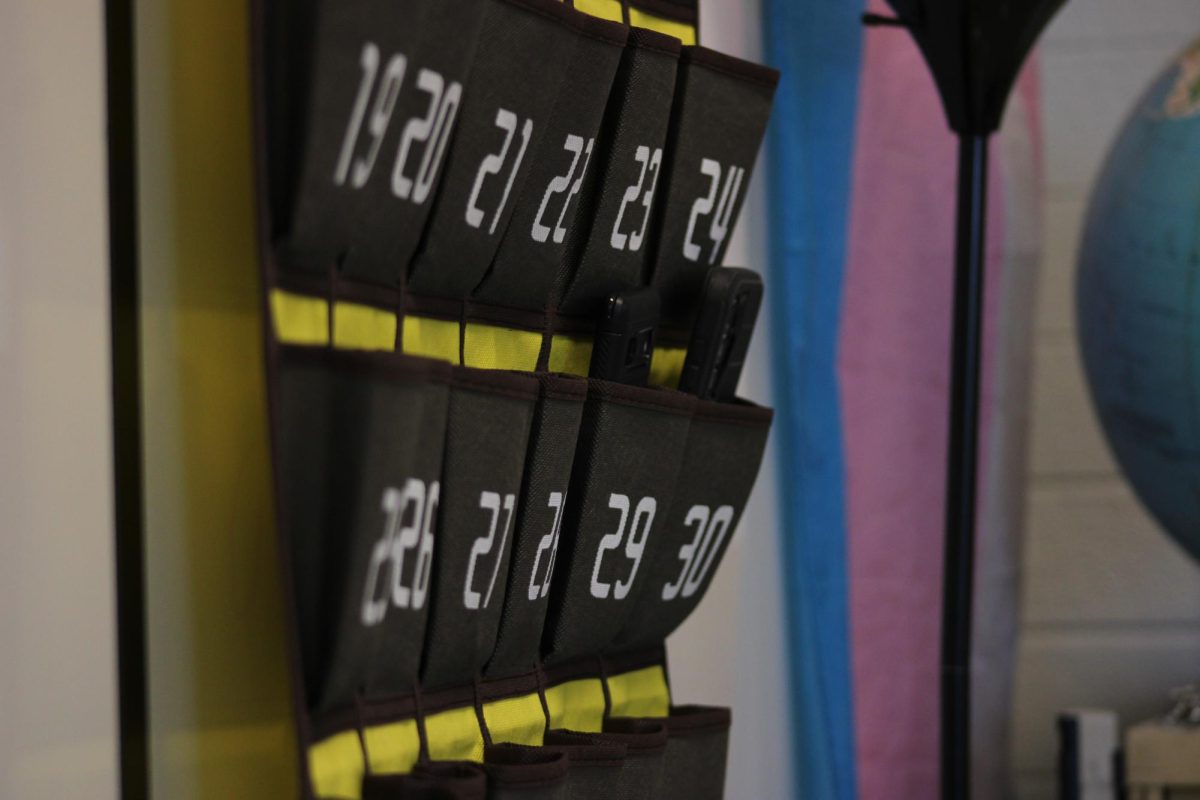Gone are the times when students’ faces glow blue when looking down at laps, hoping teachers don’t notice the diverted attention. Gone are the times when students are listening to music through headphones instead of their lessons. Cellphone usage is down, and teachers are hoping that attention spans are up.
That was the goal when Highland, West, and East High adopted the new cellphone policy. The policy requires students to put their phones in a cell phone holder or in backpacks at the beginning of class and keep it away for the duration of the class.
“The parents [in the School Community Council] said we would really like to see something done with cellphones,” Highland Principal Jeremy Chatterton said. “We didn’t want to go to a just flat-out no phone policy”.
The ultimate decision was made by the School Community Council (SCC) and then was proposed to teachers at Highland in May of last year. Both faculty and district members agreed that cellphones were a major problem in schools throughout the district.
“I think we have had a huge problem with cellphones and especially airpods,” Highland French teacher Amelia McCurdy said.
Hillside Middle School went to a full no phone policy at school, but SLC School District’s aim for high schools was more relaxed. Highland’s cellphone policy, which allows students to use their phones during passing time and throughout class time at the teacher’s behest, is much more casual than Hillside’s new cell phone policy which flat out bans phone usage throughout the day unless emergencies occur.
“At hillside they didn’t give you any warning, they would just take it,” Freshman at Highland High Vincent Valdez said.
Compared to Hillside’s policy, Highland’s was created with different goals in mind. Highland’s goal was designed not to punish students for being on their phones, or even to try and change student’s grades, but to offer respect to teachers, while still giving teachers autonomy in their own classrooms.
“The intention was to get students back engaged in the moment,” Chatterton said. “The hope is that we are able to provide students the opportunity to engage in and be more mindful about being present in where they are”.
The main goal of the cell phone policy is to bring students back to the present and offer respect to their teachers and peers. Chatterton noted how phones mainly caused problems revolving around students using their phones when they would use hall passes, and many connected with others in items revolving around the Highland drug trade.
McCurdy described how she required her younger students to put their phones away more often than her upperclassmen students, due to the resources they each required. However, as long as students were paying attention she didn’t mind where each student kept their phone.
“If I can’t see it I really don’t care if they are in your backpack or in the pouches, as long as I can see the phone is in my classroom when you are in the bathroom,” McCurdy said.
With the Salt Lake City School Districts phone policy, teachers are given more freedom and flexibility to decide how they will enforce the policy, and most just want the phone away.
“I’m going to trust teachers to that they are going to respect what we’re trying to do as a school and make that happen as best as we can,” Chatterton said.
While this new policy is something that is potentially benefiting all, students are having a slightly harder time adjusting than teachers.
“Honestly it’s a little annoying,” Highland Senior Kennedy Gurgel said. “My teachers are very worried about phones, and they take a lot of time in class to talk about it.”
Teachers are spending lots of time in class reminding students to put their phones away or explaining their own classroom rules for the phone policy when they could be using the time for slightly more effective learning. However, this year McCurdy has not had to ask any students to remove their headphones during class time. Already, teachers have seen better attention and respect compared to previous years when there was no cell phone policy.
“The feedback I’ve received so far from teachers I’ve talked to has been positive,” Chatterton said.
Despite the policy only being followed since the start of this school year, Highland teachers, along with students, don’t think it is a completely negative thing. Many are willing to give it a try, and hopefully see positive results.
“Overall, it’s wonderful. It cut down […] at least 70% the amount of cellphone issues I had last year,” McCurdy said.
Both teachers and students think that this new policy is something that could benefit everyone, despite the minor challenges it poses.
“I think it will help students learn better and it will benefit the students minds, but it’s hard,” Gurgel said. “It will definitely be a learning curve.”






























